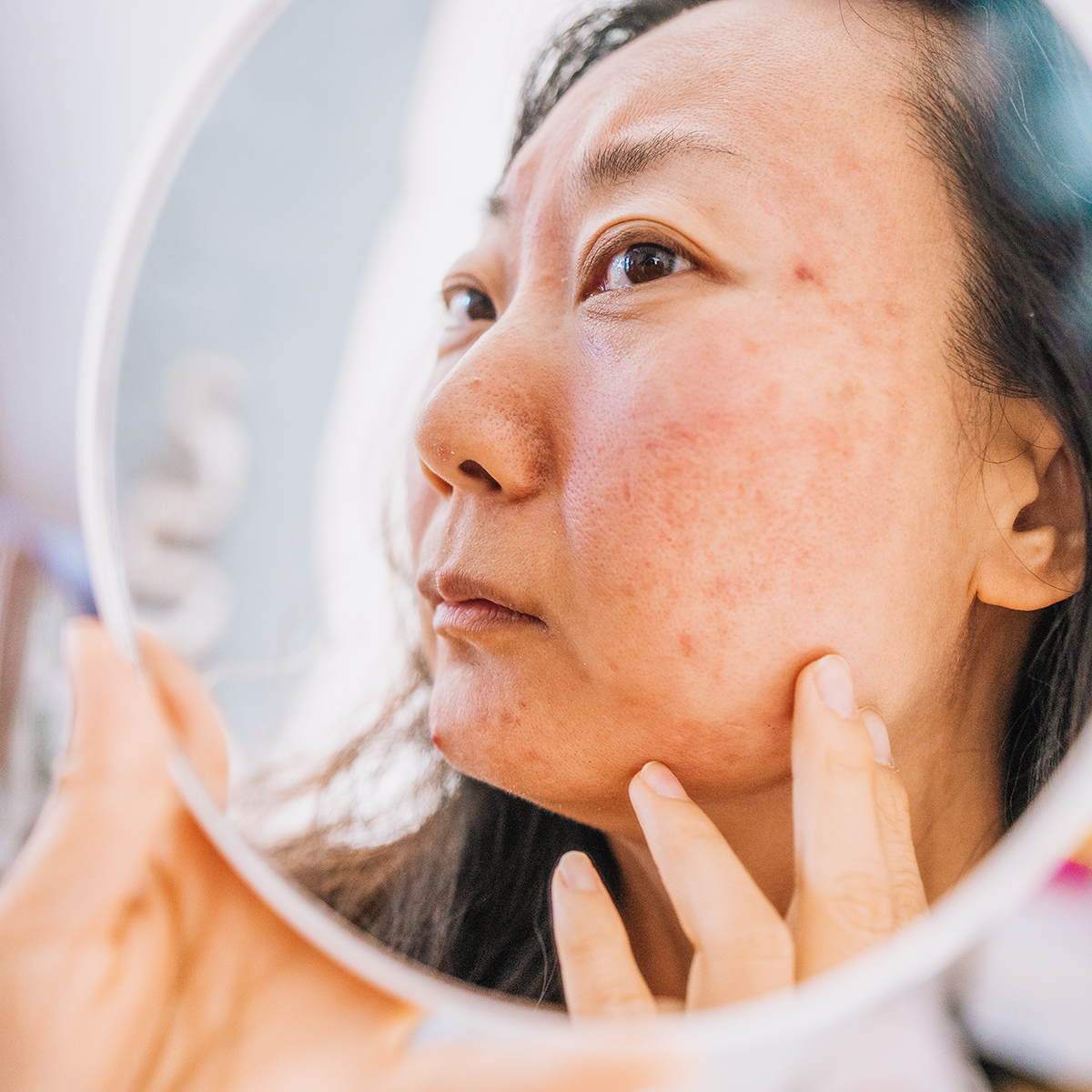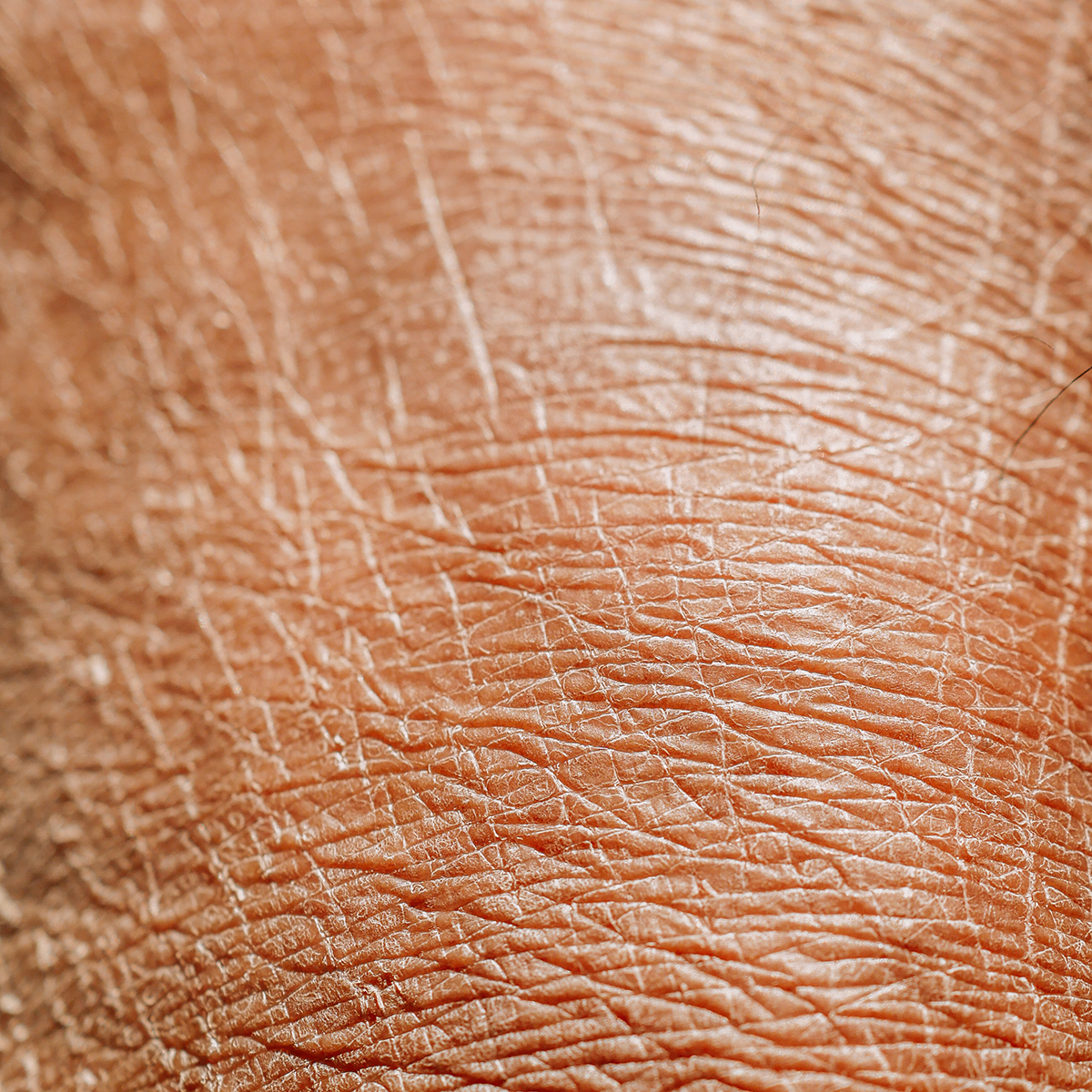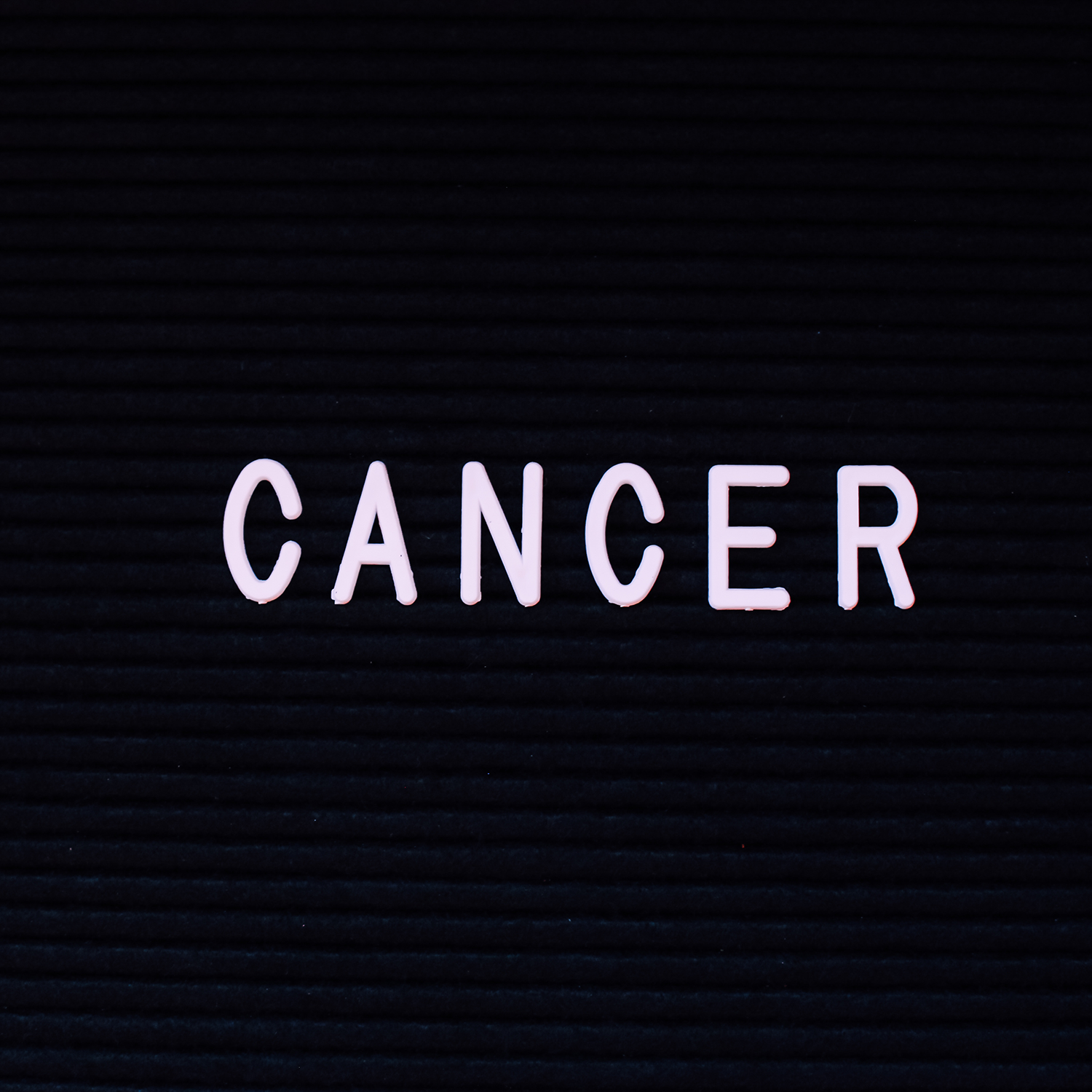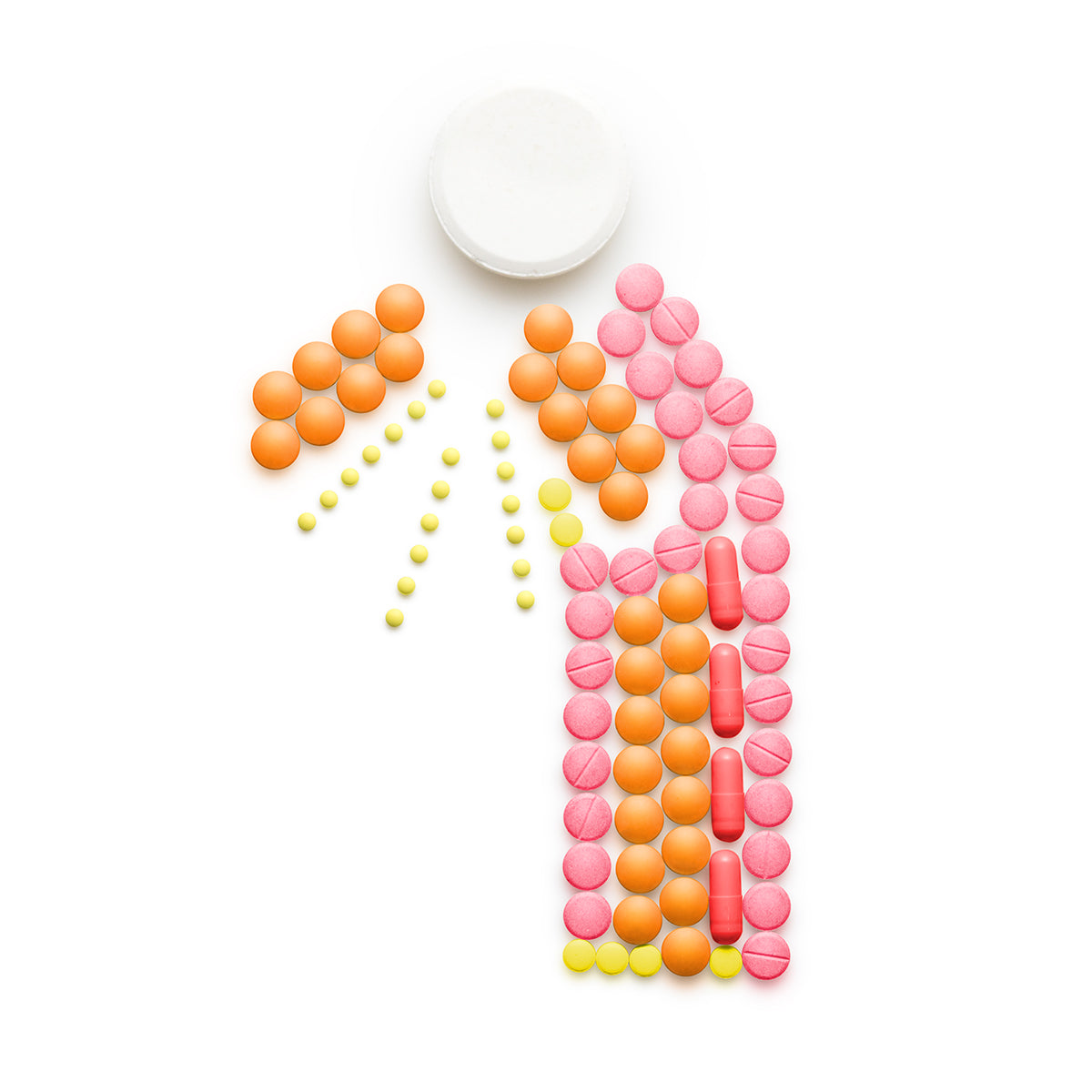10 tips for managing rosacea

Rosacea is a chronic skin condition primarily characterized by facial redness, visible blood vessels, and sometimes inflamed bumps. It often affects the cheeks, nose, chin, or forehead, though the eye area can also be involved. The exact cause of rosacea remains unclear, but stress, temperature changes, and certain foods are known triggers. In our modern lifestyle—with polluted air, excessive screen time, and sometimes poor diets—the skin’s natural ecosystem can become imbalanced, increasing the risk of rosacea flare-ups.
Below are 10 tips to help ease rosacea and support your skin through careful skincare and healthy habits. We’ll also explain how CBD, CBG, MCT oil, and jojoba oil can be beneficial ingredients, and how our mushroom supplement with Reishi, Lion’s Mane, Cordyceps, and Chaga can complement your efforts from within.
1. Avoid Strong Triggers
Why It Matters:
Rosacea is often triggered by heat, spicy food, alcohol, stress, or intense sun exposure. When the skin is already sensitive, it’s especially important to avoid sudden temperature shifts or substances that boost blood flow.
How to Do It:
- Map out your personal triggers by keeping a journal of food, activities, and rosacea symptoms.
- Adjust habits: for example, skip hot drinks or saunas if they cause significant redness.
2. Rely on CBD and CBG
Why It Matters:
CBD (cannabidiol) and CBG (cannabigerol) are recognized for their potential anti-inflammatory properties. By supporting the skin’s endocannabinoid system (ECS), they can help regulate blood vessel dilation, redness, and inflammation.
How to Do It:
- Use facial oils or serums with CBD and CBG as part of your daily routine.
- Apply morning and evening to calm redness and support the skin’s natural balance.
3. Gentle Cleansing with MCT Oil
Why It Matters:
Skin with rosacea is highly sensitive and can easily become more irritated by harsh soaps or scrubs. MCT oil is a mild, non-comedogenic ingredient that gently dissolves dirt and makeup without drying out the skin.
How to Do It:
- Choose a cleanser based on MCT oil and lukewarm water, avoiding hot showers and strong cleansers.
- Pat the skin dry with a soft towel, don’t rub.
4. Monitor Stress Levels
Why It Matters:
Stress affects the entire body, including the skin’s ability to manage inflammation. High cortisol levels can worsen rosacea symptoms and lead to more flare-ups.
How to Do It:
- Prioritize recovery: meditation, walks in nature, light exercise, or yoga can all help lower stress levels.
- Ensure you get enough sleep: 7–8 hours each night whenever possible.
5. Add Adaptogens via Mushroom Supplements
Why It Matters:
Reishi, Lion’s Mane, Cordyceps, and Chaga are known for their adaptogenic and antioxidant properties. They can help the body better cope with stress, which is often key to keeping rosacea symptoms under control.
How to Do It:
- Take Fungtastic Mushroom Extract regularly to support immunity and balance inflammation from within.
- Pair it with a varied, nutrient-rich diet for the best effect.
6. Jojoba Oil to Strengthen the Skin Barrier
Why It Matters:
Rosacea often involves a weakened skin barrier. Jojoba oil mimics the skin’s own sebum, helping it retain moisture and shield against external stressors.
How to Do It:
- Apply jojoba oil or a CBD-/CBG-enriched facial oil after cleansing to lock in moisture.
- Avoid excessive exfoliation that could harm the already sensitive skin barrier.
7. Avoid Sudden Temperature Changes
Why It Matters:
Rapid shifts between cold and heat cause facial blood vessels to expand and contract quickly, which can heighten redness and inflammation.
How to Do It:
- Dress in layers to regulate your temperature.
- Avoid long, hot showers or saunas.
- Try to maintain a cool indoor climate where you spend most of your time.
8. Be Cautious with Sun Exposure
Why It Matters:
UV radiation is a common trigger for rosacea flare-ups. While the sun may feel soothing for some skin conditions, protecting sensitive, redness-prone skin is crucial.
How to Do It:
- Use a gentle, non-comedogenic sunscreen with at least SPF 30.
- Avoid direct sunlight during the day’s strongest hours (11 a.m. to 3 p.m.).
- Wear a cap or hat during outdoor activities for added protection.
9. Mind Your Diet
Why It Matters:
Certain foods, like spicy dishes and alcohol, can worsen rosacea symptoms. Meanwhile, a balanced diet with antioxidants and healthy fats can support skin health.
How to Do It:
- Identify potential dietary triggers, such as spicy chili, alcohol, or caffeine.
- Eat more anti-inflammatory foods like fatty fish (rich in omega-3), vegetables, and fruits.
- Combine with your mushroom supplement for extra immune support.
10. Care with a Consistent Skincare Routine
Why It Matters:
Rosacea often requires patience and a long-term approach. Frequently switching products or overloading the skin can aggravate the condition.
Recommended Skincare Routine
Morning:
- Rinse Your Face with Cool/Lukewarm Water: A gentle start to the day for sensitive rosacea skin.
- The ONE Facial Oil – 3–4 Drops: A CBD-, CBG-, and MCT-based oil combined with jojoba oil to calm inflammation and strengthen the barrier.
- TA-DA Serum – 1–2 Pumps: Deeply hydrates and protects against external stressors.
- Fungtastic Mushroom Extract – 2 Capsules: Reishi, Lion’s Mane, Cordyceps, and Chaga for internal balance and adaptogenic benefits.
Evening:
- Au Naturel Makeup Remover: Mild cleansing that removes dirt and makeup without irritating redness-prone skin.
- I LOVE Facial Oil – 3–4 Drops: A nourishing oil with CBD, CBG, and jojoba to support skin recovery overnight.
- TA-DA Serum – 1–2 Pumps: Helps the skin retain moisture and repair itself while you sleep.
Bundle Deals:
- DUO Kit (The ONE + I LOVE Facial Oil): Two potent oils for day and night to balance redness and reinforce the skin barrier.
- DUO Kit + TA-DA Serum: Extra hydration and barrier support for rosacea skin.
Rosacea is largely about understanding your own triggers and consistently supporting the skin’s natural functions. By using ingredients like CBD, CBG, MCT oil, and jojoba oil, and complementing them with a mushroom supplement (Reishi, Lion’s Mane, Cordyceps, Chaga), you can reduce redness, promote internal balance, and strengthen the skin barrier. Combine these tips with stress management and a gentle, steady skincare routine for the best possible results.




Comments